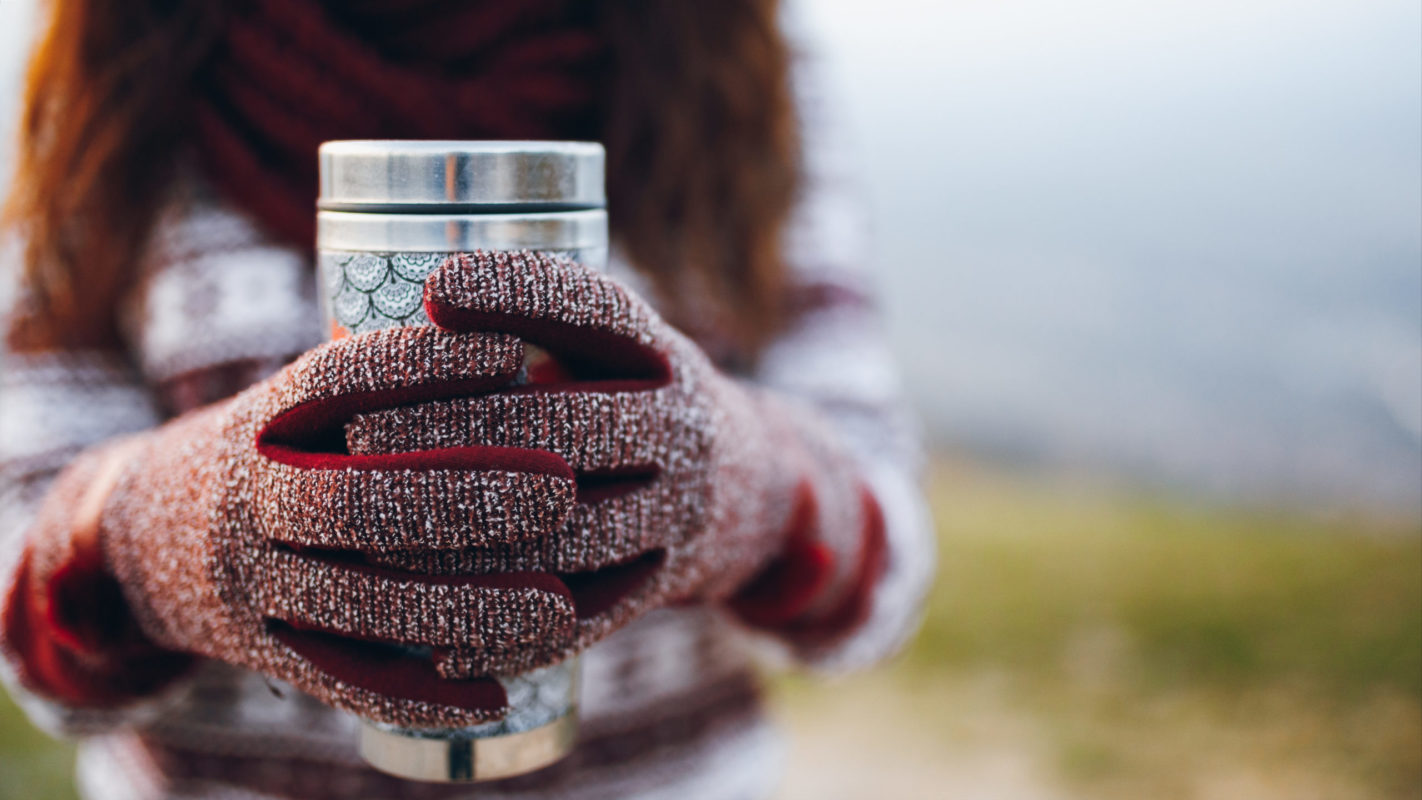Did you know it’s just as easy to suffer from dehydration in the winter as the summer?
It’s true for several reasons:
- Research shows people feel 40% less thirsty when it’s cold outside, but being less thirsty doesn’t mean you’re better hydrated.
- Your body loses moisture all the time through breathing, sweating, urinating, etc. But because people sweat less in winter, they tend to notice the loss of fluids less, too.
- Winter air has less humidity, and heating dries the air inside. If you aren’t properly hydrated, you can end up with chapped lips, cracked hands and itchiness.
Here’s what you need to know about staying hydrated during colder months:
What is dehydration?
Dehydration happens when your body doesn’t have enough fluids to function properly. Our bodies are 50-80% water, and the average adult needs 100 oz. — about 12 cups — on an average day.
What are the signs that you’re living in a state of dehydration?
- Excess thirst or dry mouth
- Dark-colored urine, especially the first time you urinate each day
- Dizziness or fainting
- Fatigue, confusion or irritability
- Dry skin
- Headache
- Muscle cramps
- Rapid heartbeat or breathing
- Sunken eyes
- Feeling “funny”
- A high fever
Are certain people more at risk of dehydration?
Yes, children, seniors and people on certain medications.
- Children and young adults often forget to drink water in general, and especially after sporting events.
- Our bodies’ water content naturally decreases with age, and seniors are more prone to seeing extreme effects from sweating, vomiting or diarrhea.
- Blood pressure medications and laxatives also increase dehydration.
What foods and drinks increase the risk of dehydration?
- Alcohol
- Caffeine
- Sugary drinks
- Foods high in sodium, such as cured meats, canned foods and soy sauce
- High-protein diets (your body uses more water processing protein and meat than vegetables)
- Dietary supplements
Is tap water enough?
- If you’re not already dehydrated, water should be enough.
- However, if you’re already experiencing dehydration, sports drinks or an electrolyte-fortified beverage such as Pedialyte may be needed to replenish electrolytes.
How do you treat or avoid dehydration?
Treat it
- If you experience nausea or vomiting for more than 24 hours or diarrhea for more than 48, contact your doctor.
- Notify your physician immediately if there’s blood in your vomit or diarrhea.
Prevent it
- Drink more water. It’s the easiest and most important thing you can do.
- Don’t rely on thirst to tell you when to drink water. Aim for 12 cups a day. Don’t want to count cups? Carry a 32-oz water bottle and refill it 3 times a day.
- Drink extra fluids after you exercise.
- Eat more fruits and vegetables, which contain fiber and water.
- If cold water doesn’t appeal to you, drink warm beverages like hot, caffeine-free tea.
- Avoid alcohol and caffeinated drinks.
Get more information about specific health terms, topics and conditions to better manage your health on bcbst.com. BlueCross BlueShield of Tennessee members can access wellness-related discounts on fitness products, gym memberships, healthy eating and more through Blue365®. BCBST members can also find tools and resources to help improve health and well-being by logging into BlueAccess and going to the Managing Your Health tab.






WellTuned provides inspiration and practical advice for healthy living.
WellTuned does not offer medical advice. Any personal health questions should be addressed to your doctor.